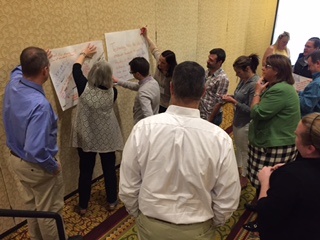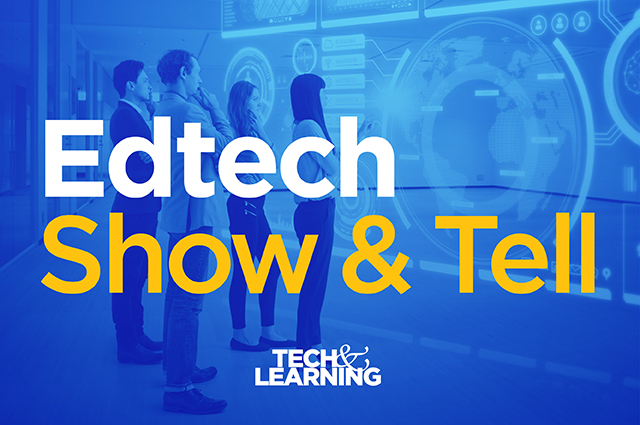The Future Seems Bright for #FutureReady

Tools and ideas to transform education. Sign up below.
You are now subscribed
Your newsletter sign-up was successful
There was no official talk about the election at this week’s #FutureReady Summit in Boston, which took place November 14-15 at the Boston Marriott Newton. Over two days, co-hosts Tom Murray (@thomascmurray), Jeff Mao (@jmao121), and Barbara Treacy (@barbaratreacy) led a roomful of district leaders through the Future Ready Interactive Dashboard with a combination of presentations, panel discussions, interactive activities, and opportunities for district teams to dive in to the nuts and bolts of the Dashboard’s various steps.

Eric Sheninger (@e_sheninger) opened the summit with a presentation in which he discussed the lessons he learned while he was a principal in Milford, NJ. He explained how he changed his leadership style from a top-down, siloed approach to one that focused on communication and collaboration. He discussed his transition from a “lurker” on Twitter, to a regular blogger, to a best-selling author of the books Digital Leadership and Uncommon Learning. “You will not be an effective leader without being an effective communicator,” he said.
The group then broke into a few interactive activities, including the “Graffiti Gist Protocol” that tasked teams to create collaborative vision statements, and an exercise that asked teams to collaboratively draw a “Future Ready” leader. IMAGE (Have you ever seen a group of superintendents attempt collaborative artwork? Highly entertaining!)
Barbara Treacy then facilitated a panel discussion including Mario Andrade, Superintendent of the Bristol Warren Regional School District (RI) (@mariojandrade), Sujata Bhatt, Managing Partner of Innovation of Boston Public Schools (MA) (@SujataBhatt), and Lourenco Garcia, Principal, Revere Public Schools (MA) (@lourenco962). The panelists shared their experiences as district leaders navigating the systemic cultural shift required to become #FutureReady."A principal can't do this alone,” advised Garcia. “Release some control and create ownership to create innovative culture.”
The second day offered more opportunities for district teams to discuss how the Future Ready framework might fit into their overall goals and planning. They used the “Five-Step Planning Process: Creating a Systemic Plan for Transformation” to plan, including reviewing their vision, self-assessment data, gaps and strategies, and goal setting while utilizing the FRS interactive planning dashboard.
In the afternoon, attendees were invited to attend two of the following breakouts:
- Sustainability and Procurement
- Digital Citizenship (Jeff Mao, Common Sense)
- Robust Infrastructure and Privacy (Keith Kreuger, CoSN)
- Open Educational Resources and Creative Commons (Andrew Marcinek)
- Personalized Learning (Beth Rabbit, The Learning Accelerator)
The closing session reviewed the free resources available to any district:
Tools and ideas to transform education. Sign up below.
- Future Ready Interactive Dashboard; Future Ready Librarians
- Leadership Hub(Conference Connections), Partner Activities, Webinars
- Future Ready Leaders ; GoOpen: Open Educational Resources (U.S. Ed Resources)
So… back to the elephant in the room: will the DOE-endorsed Future Ready exist in a Trump administration? The answer is a resounding “yes” according to Future Ready’s Sara Hall, who says they have “grand plans for 2017 regardless of the administration.” Because Future Ready is funded by a variety of foundations and private funders (such as the Nellie Mae Education Foundation, which funded the Boston event), they can continue with or without official DOE support.
As you look ahead to your school's future, have you taken the pledge to become #FutureReady?
Christine Weiser is the Content and Brand Director for Tech & Learning, and has been with the company since 2008. She has reported on education for most of her career, working at Scholastic and Gale Publishing before joining Tech & Learning. Christine is also an author and musician, and lives in Philadelphia with her husband and son.
